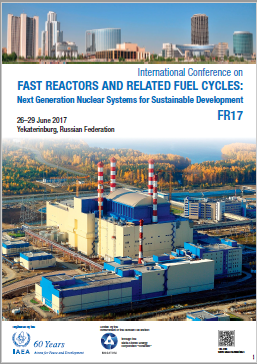Speaker
Prof.
Christophe POINSSOT
(French Nuclear and Alternative Energy Commission)
Description
Environmental issues are nowadays a growing concern within most of the public opinion. It is therefore mandatory to propose relevant and qualified assessment of the overall environmental footprint of the different types of energy sources which are envisaged to be implemented. This question is specifically important for nuclear energy which suffers from a poor image in the public opinion due to the recent Fukushima accident. In this context, we developed a Life Cycle Assessment (LCA) tool, referred to as NELCAS, based on the current French nuclear energy system. Thanks to the Nuclear Safety and Transparency annual reports, detailed quantitative data were available for each of the fuel cycle plants. The whole fuel cycle from ore-mining to geological repository was considered as well as data for construction, deconstruction of any plants as well as the contribution of the transport. All the matter and energy fluxes were considered and normalised versus the electric production. Key environmental indicators, such as land use, water withdrawal and consumption, gaseous release, acidification, eutrophication, waste production … as well as potential impact indicators were hence assessed and validated with comparison with the few existing LCA results. This model was hence used to assess the respective figure of merits of the different generation of reactors and fuel cycles. In particular, it demonstrates that actinides recycling has a strong beneficial effect on the overall footprint due to the relative high impact of the front-end activities, specifically the ore mining.
In the framework of a joint CEA-EDF-AREVA group, reference deployment scenario for the 4th generation reactors were developed for the French case based on both technical and economic considerations. The NELCAS tool was therefore used to assess the impact on the overall environmental footprint of this reference scenario.
Country/Int. Organization
CEA, French Nuclear and Alternative Energy Commission, Nuclear Energy Commission,
Primary author
Prof.
Christophe POINSSOT
(French Nuclear and Alternative Energy Commission)
Co-author
Dr
Stéphane BOURG
(CEA)

